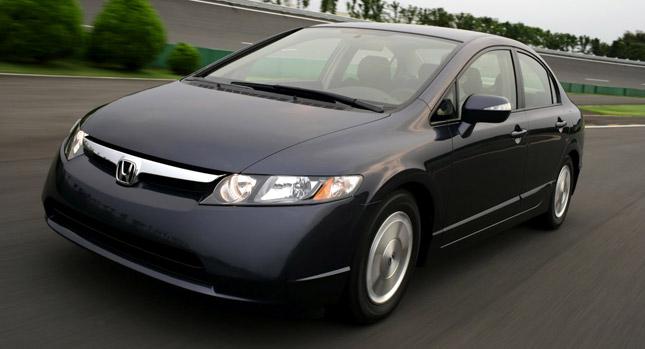In February of 2012, Honda Civic Hybrid owner Heather Peters was awarded US$9,867 by a small-claims court in California after she accused the Japanese automaker of overstating the car’s 50mpg fuel economy figures.
However, being that Peters wasn’t the only one to refuse Honda’s class-action settlement that offered some 200,000 owners US$100-200 each and a $1,000 credit on purchasing a new car, the Japanese company decided to appeal her win.
While lawyers are not allowed in small claims court in California, they are permitted on appeal. And unfortunately for Peters, Honda pulled the big guns hiring a national law firm with more than 800 lawyers to represent the company in court.
On Wednesday, Superior Court Judge Dudley W. Gray II overturned the small-claims judgment against American Honda Motor Co. on the basis that Honda simply advertised the official EPA figures.
Gray’s ruling found that while Peters has standing to bring the suit in state court, “federal regulations control the fuel economy ratings posted on vehicles and advertising claims related to those fuel economy ratings” and that Honda at all relevant times “complied with applicable Environmental Protection Agency (“EPA”) and Federal Trade Commission (FTC) requirements”.
The judge’s ruling noted that EPA’s estimated miles per gallon ratings are for comparison among vehicles and do not take into account many factors that affect mileage at a given moment.
“Despite these many variables, most of the owners of the subject vehicle achieve fuel economy very close to the EPA estimate,” wrote Gray. “A graph was presented that showed the results of real world fuel usage as reported to fueleconomy.gov . The graph demonstrates the bell curve expected in nearly any large group surveyed. The majority of users report mileage very close to the EPA estimates,” he added.
Gray also ruled that Honda’s advertising slogans did not promise anything.
“With regards to Plaintiff’s complaint about Defendant’s use of advertising slogans such as “sipping fuel”, “amazingly little fuel” and “saves plenty of money on fuel”, the Court rules that these are non-actionable sales puffery. They are not specific promises of anything,” said Gray.
Peters on her behalf said that she understands the ruling but is disappointed.
“It’s a sad day when regulations designed to protect consumers are used against them. I’m certain that the EPA and FTC never intended to shield Honda from liability for advertising claims that a court of law determined to be false,” she said.
“Of course I’m disappointed, but I’m still glad that I raised awareness that Honda is no longer the great brand that it used to be. They used to go the extra mile in customer service, now the go the extra mile fighting customers in court. I guess the moral of the story is buyer beware – especially of Honda!,” said Peters.
The court decision is now final, though the ruling will not directly affect the other pending cases on the matter.
Peters wrote on her ‘Don’t Settle with Honda’ website that the 1,705 people who opted out of the class action settlement “may possibly be able to opt back in” adding that anyone who owned or leased a 2003-2009 Civic Hybrid can read about their rights at www.hchsettlement.com.
PHOTO GALLERY










